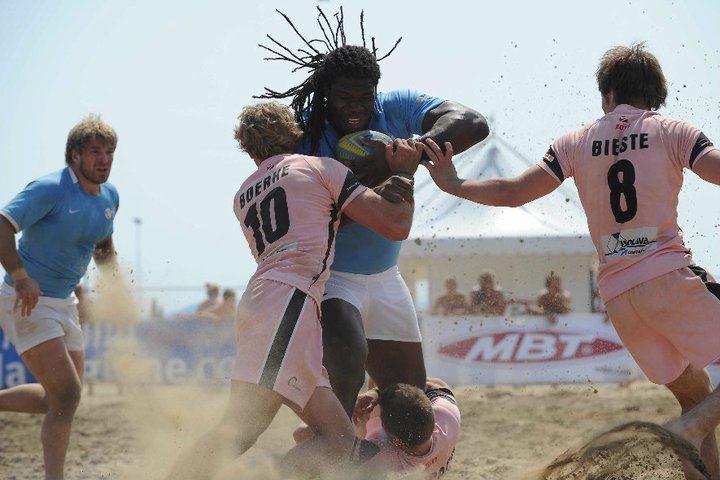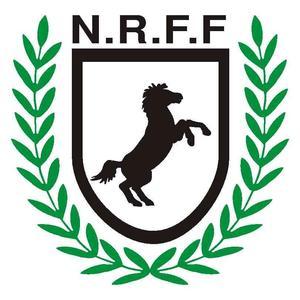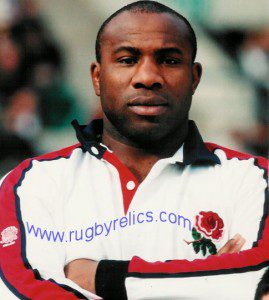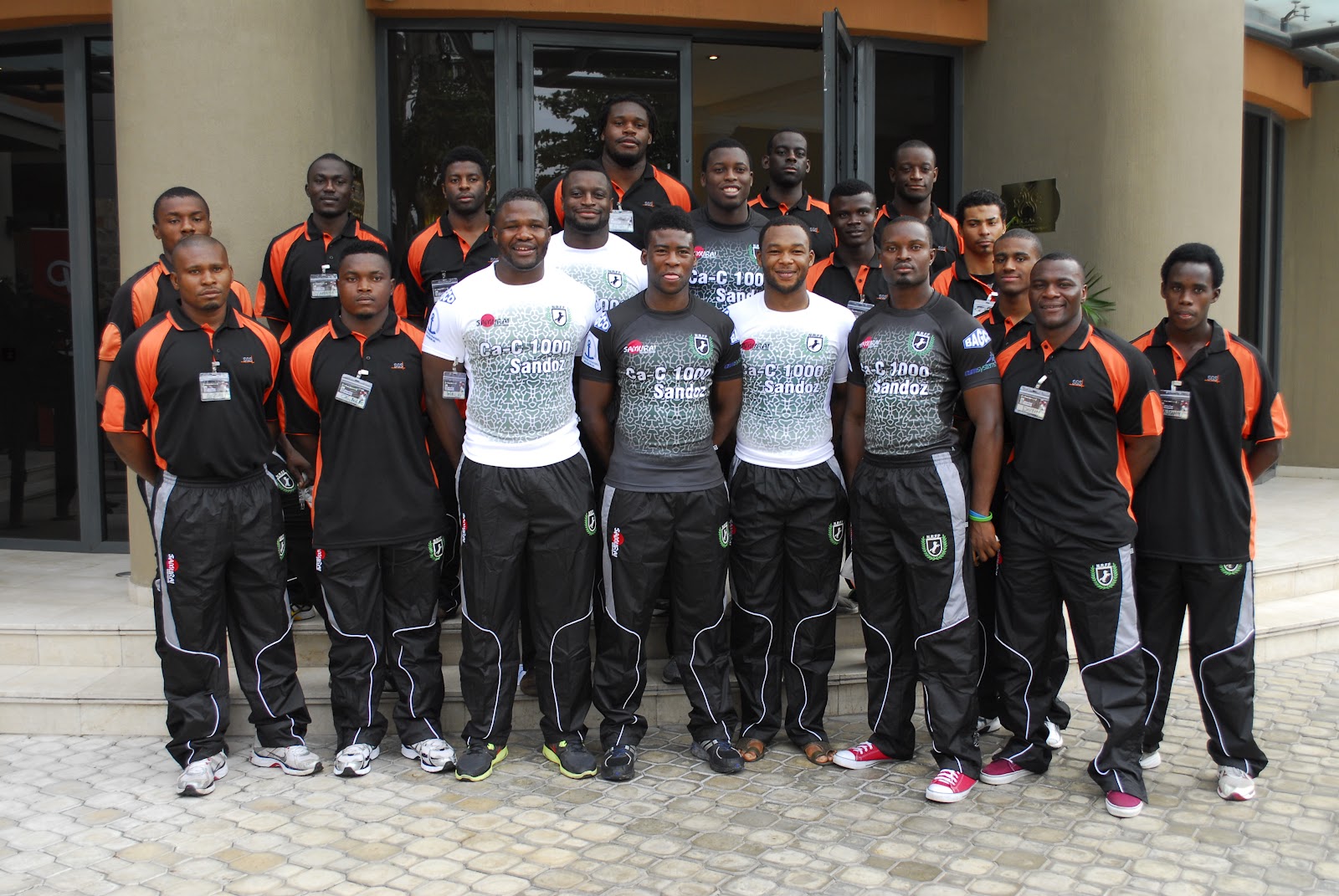
Nick “Bones” Attewell had the pleasure of interviewing the towering talisman of the rejuvenated Nigerian Rugby team, Nsa “Junior” Harrison.

ATTEWELL: Nsa, tell us a bit about yourself and how you got into rugby. At what age did you take the game up?
NSA: Thinking back, I officially played rugby league for the first time at St. Saviours School in Lagos – aged 9, then moved on to Malvern College in Worcestershire where I started at inside center. I’m 28 now, working in finance in London’s West End. Recently, I have played my club rugby with Esher and Staines RFCs.
ATTEWELL: You’re a big man, even by test rugby standards. What’s your exact height and weight? How often have you faced larger players?
NSA: Apparently so! Standing at 6’7” [but] with an incredible fluctuating weight. Think at present time weighing in at 147kgs (324 lbs). I must have faced a few bigger guys in my time, but size doesn’t really phase me as the smaller ones tend to be the most ferocious.
ATTEWELL: It may be fair to say Nigeria under-performed in the past. Nigerian Rugby was recently overhauled and yourself and some other UK-based players have taken on the role of improving the national team. What is your role in reorganizing and bringing in core players from the UK?
NSA: Nigeria as a team may not have performed [well] previously, but Nigerian players certainly have delivered at the top level. You only need to look at the likes of Martin Offiah, Topsy Ojo, Ayoola Erinle and Victor Ubogu to know that the potential has always been there. Nigeria is a country of 160m people, who are natural athletes – which is why a lot of Nigerians living abroad end up representing other nations at many sports. The organisation hasn’t been great but with Jide Afolabi and Martin Crawford working hard in Nigeria and Mark Dean in the UK, the structure has got much better and shows real potential.
 With regards to players from the UK, Nigeria is no different to the likes of Argentina, Georgia or the Pacific Islands, who select mostly overseas-based players. The NRFF (Nigerian Rugby Football Federation) has enlisted the help of UK based coaches and managers, like Mark Dean, who are now working with the UK based players to improve the standard and depth of the Nigeria playing squad. The fact that there are so many UK based rugby players just gives Nigeria another pool of quality, committed players to represent their country
With regards to players from the UK, Nigeria is no different to the likes of Argentina, Georgia or the Pacific Islands, who select mostly overseas-based players. The NRFF (Nigerian Rugby Football Federation) has enlisted the help of UK based coaches and managers, like Mark Dean, who are now working with the UK based players to improve the standard and depth of the Nigeria playing squad. The fact that there are so many UK based rugby players just gives Nigeria another pool of quality, committed players to represent their country
ATTEWELL: You just played a Confederation of African Rugby/RWC 2015 Qualifier in Botswana. You came up against an Ivory Coast side containing veterans of the French leagues and Mauritius. You narrowly lost both. Is there disappointment that the 2015 qualifying process ended so swiftly or are you encouraged by achieving competitive results with very little time together?
NSA: I’d say as a group we were hugely disappointed, as we felt we dominated both games in terms of possession and territory as well. However, looking back it’s remarkable that with such little preparation we managed to be incredibly competitive over 160 minutes. I’m not one for what-ifs, so all we can do is learn from it and know that next year we need to come back better prepared… To put it in perspective, we are competing against IRB-funded teams with high levels of sponsorship, who can run two-week training camps before tournaments like this. Nigeria currently receives zero funding. The fact that we can compete with teams with zero preparation time, suggests that with investment Nigeria could be a dominant rugby force.

ATTEWELL: How did the UK and native Nigerian guys in the side get on? Were any of you making your first trips to Africa? What were your impressions of Botswana?
NSA: The majority of us were either born in, or grew up in, Nigeria. Even the ex-pat members of the management team have spent several years all over Africa and most of the squad had met before in some capacity. The biggest issue is actually getting the funding to bring the squad together from a rugby perspective, rather than any cultural differences. Oh, and as a squad we were united in the idea that Botswana was bloody cold. Proven by the fact we could use our motel pool as an ice bath.
ATTEWELL: That is cold! We mentioned the achievements by players of Nigerian descent in the UK. Now that Nigeria are actively seeking to recruit these players for the national team, are their other names you have your sights on?
NSA: The NRFF is looking at fielding the best possible team it can. We are looking at any overseas based players or ex-pats who are playing at a high level. We’ve just recruited the brothers Michael and Robert Worrincy (London Irish and Halifax; Rugby League) as well as William Sharp (Hull; Rugby League), Junior Ibrahim (London Irish Academy) and Peter Cole (Tynedale RFC), who are playing in the top tiers of English rugby. I don’t see this stopping anytime soon. As Nigerian rugby develops, we intend to make it harder for Nigerian-born and eligible players to opt to play for any other nation. Look at the success Jamaican sprinting has had now that their top athletes don’t choose to represent the USA!

ATTEWELL: London Nigerian, an exiles side established in the tradition of London Irish, London Welsh and London Scottish, earned a promotion this past season. Now that there is a group of UK players committed to Nigeria, will an effort be made to bolster London Nigerian with national team members?
NSA: I actually started playing adult rugby at London Nigerian back when they were in the Old London 1, before there was a slight decline and drop down in the leagues. I’ll admit the idea of having a strong London-based Nigerian side would be great but the NRFF isn’t there to aid one particular club in the UK or in Nigeria. The NRFF exists to run and develop Nigerian rugby and when that comes to overseas-based players, that is seeing that they play and are coached to the highest level they can regardless of the club.
ATTEWELL: Africans qualifying for the RWC 7s seems to be next on the agenda for Nigeria. Being a lock, what are your thoughts on the shortened version of the game? How do you expect Nigeria to fare?
NSA: I’m a big fan of the shortened game, I was fortunate enough to be selected to go to Dubai last December and injuries aside, would be honoured to be selected for Morocco (African RWC7s qualifying) this year as well. Most of our forwards played as backs when they were younger so are blessed with slightly more superior handling skills than the norm. I think Nigeria have the ability to be very competitive, based on coming third in the African Games last year.
That’s one BIG back.
ATTEWELL: The London Olympics have finished and Rio 2016 will see rugby’s return to the games. Do Nigeria have aspirations to qualify in sevens?
NSA: It’s sad that sevens wasn’t in for these Olympics, as the atmosphere created would have been perfect for London. I managed to pop along to the beach volleyball (both men and women – before anyone asks). It’s a given we’ll be doing all we can to qualify for Rio.
ATTEWELL: Lastly, if you could pick one Nigeria-eligible athlete anywhere to play rugby, who would it be and why?
NSA: I’d probably want to stick sprinter Olu Fasuba on the wing, his personal best for the 100m is 9.85 and you can never have too much pace.

